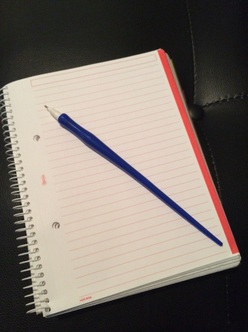Recently my Student Teachers completed their finals in the form of a self reflection based on the goals of the program. This is one of their final assignments for their first semester of PDP. At the end of their final they are asked to attach an Action Plan–this is where they reflect on the things that they know they still need to improve upon, they come up with a plan, and describe what they are going to do over the next 2 semesters to help them improve in that area. It was such a great process and they came up with so many unique and fantastic plans to improve their teaching! I was so impressed with the process that I started to do one for myself…which got me thinking: do we all need to be on an action plan?
Wouldn’t this be a great practice for all of us to adopt? What if we all ended every term with an action plan for how we were going to improve in a certain area next term? An action plan, where just like in PDP, we all wrote out specific areas for improvement and then strategies we were going to try so that we could grow in those areas?
Even master teachers have aspects of their teaching to work on. We all do. Brookfield (1995) talks about the 4 lenses for critical reflection in Becoming a Critically Reflective Teacher and the first lens is self-reflection. And although I think the other three are also important (the student lens, peer lens and looking at the literature) I wonder if we are doing all we could with that first lens-our own. I believe that I have always been a reflective teacher, but it is only in the last 3 years (since I began my journey in graduate school) that I began to formally and regularly write down my reflections. There is something to this writing down of the reflections. I have noticed a difference in the quality of my reflections, and I have also realized that I tend to learn more about myself while I am writing. Through the process of journaling, I am writing and then reading my own reflections and just as Hobson (2001) describes, it is because of this process that I am able to really notice certain aspects of my practice.
In other words, I think I was reflective before I came back to journaling, but I have certainly found that writing has helped me organize my reflections, find patterns and then set goals. My very own Action Plan. Just like my Student Teachers.
I have returned to the reflective practices that I left behind once I completed my Bachelor of Education, and I am so happy that I have because I know it is making me more aware of what I need to change in my current practice–I have a better awareness of what is working and what needs to be shifted.
I know that it is more time consuming to journal as a means of reflection, but I think it is worth it. It can help us come up with an Action Plan for ourselves. Something to help us continue to grow as professionals.
What do you think? How do you reflect and set goals for your professional (or personal) development?
Bibliography
Brookfield, Stephen. Becoming a Critically Reflective Teacher. San-Francisco: Jossey-Bass. 1995.
Hobson, D. “Action and reflection: Narrative and journaling in teacher research” in Burnaford, G., Fischer, J., & Hobson, D. (Eds.). Teachers Doing Research: The Power of Action Through Inquiry. US: Routhledge, 2001.

